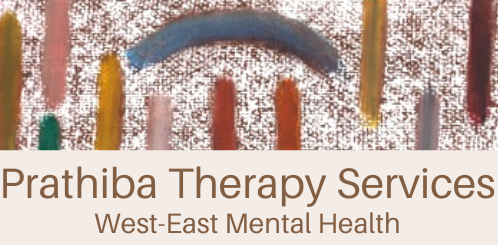Culture and Mental Health
PTSD in South Asian people
Does PTSD exist in South Asian people - even if we haven’t had any bad things happen to use like war?
This question often gets asked to me, by many South Asians when I engage in community talks on “recognising emotional pain for mental wellness” with women, men, parents, elders, community members. And my answer to the question, is YES!!!
Posttraumatic stress disorder (PTSD) can occur in all people, of any ethnicity, nationality or culture, and at any age. This disorder happens when certain events and experiences of “shock” affects the sensory nervous system, and the sensitized nervous system functions in a reactive way to any sources of “perceived threat” from others.
Here are some hidden myths and facts about PTSD collated from my work with South Asian individuals, and families…
All of us have been exposed to some sort of “shock” in our lives. It doesn’t mean I have PTSD. TRUE.
Each of us carry different thresholds of sensory nervous system functioning. For some people, one “shock” experience is enough to make them feel vulnerable, and for others this may not be the case.
Was there a time in your life that you believe changed YOU and others around you in a profound way?
Have you had one or repeated experiences of stresses that has made you feel “ashamed” and not proud of your-“self”?
Does the word “double” life describe the “disconnect” you carry in how you feel about yourself, and how others perceive you?
If you have answered YES, then you have been impacted by “shocks” that are forcing you to internalise the pain and suffer in silence.
Men don’t suffer from PTSD, women do because they are more sensitive. FALSE.
This disorder does not have any association with gender, it is more to do with one’s predisposition to their sensory ability to cope with “stresses and shocks” in a calm and relaxed manner.
South Asian men do suffer from symptoms of PTSD, particularly when they have had one or repeated experiences of shame for not acting, living and behaving like a “man”.
Children don’t suffer from PTSD. I had many “bad experiences” growing up, and I turned out fine. FALSE.
As a child, did you feel scared, shamed, or frightened of saying or doing something most of the time?
As a child, did you escape from “bad experiences” by day dreaming, avoiding places knowing “bad things will happen”, “sneak or avoid telling the truth”?
As a child, did you believe “I can’t do anything right, something is wrong with me?”
If you answered YES, then you were coping with symptoms of child PTSD (dissociation, inability to focus, not feeling in control with your own emotions) to reduce sources of “perceived sources of threat”.
